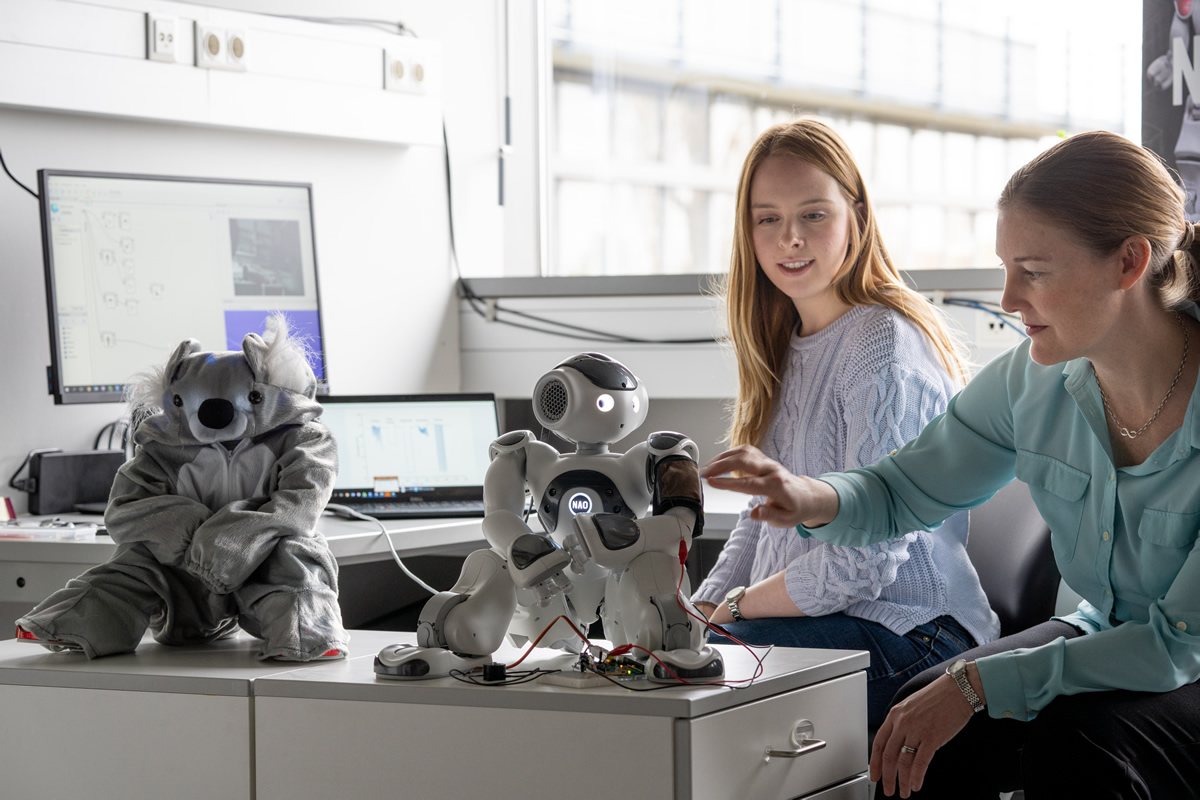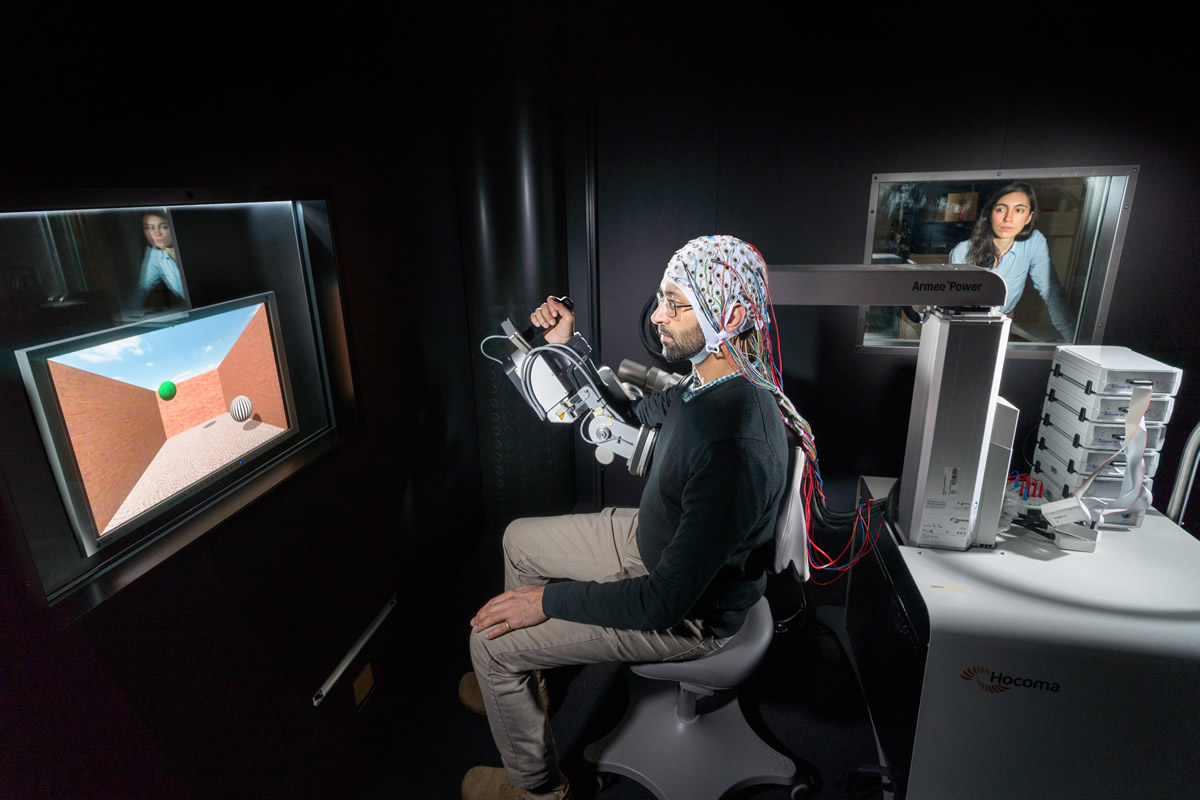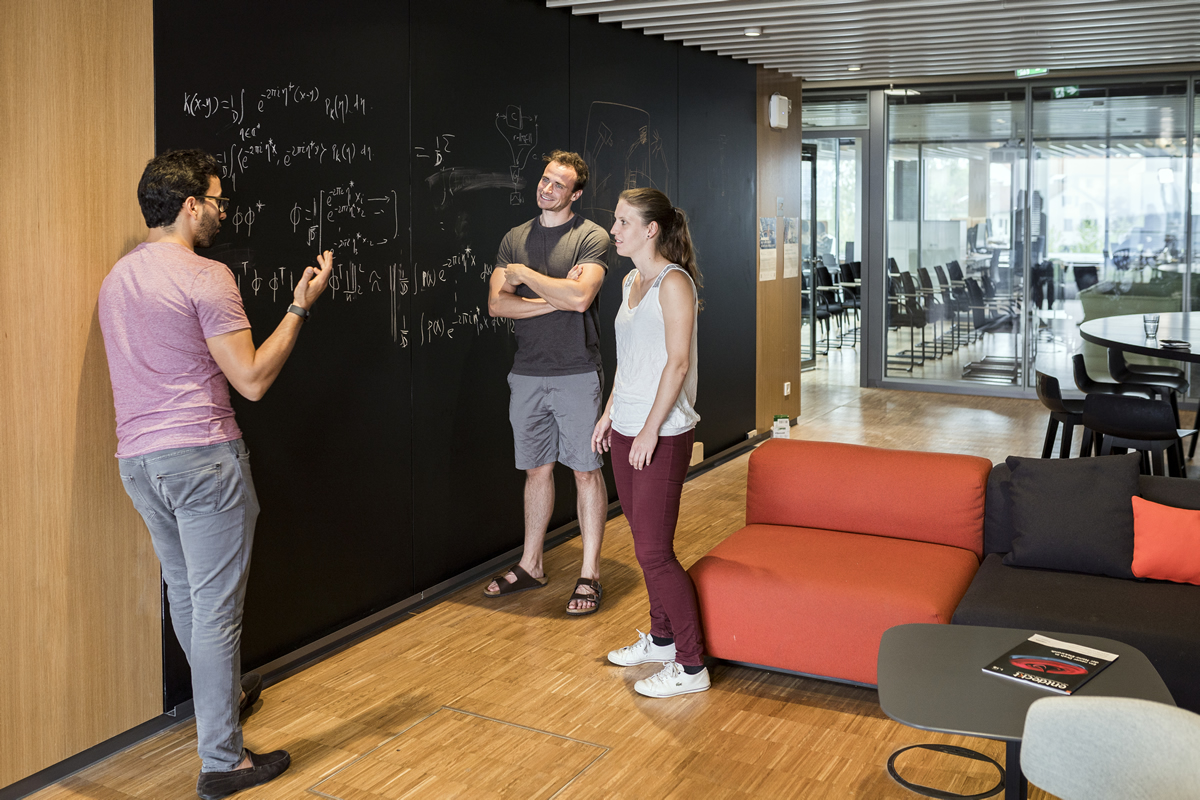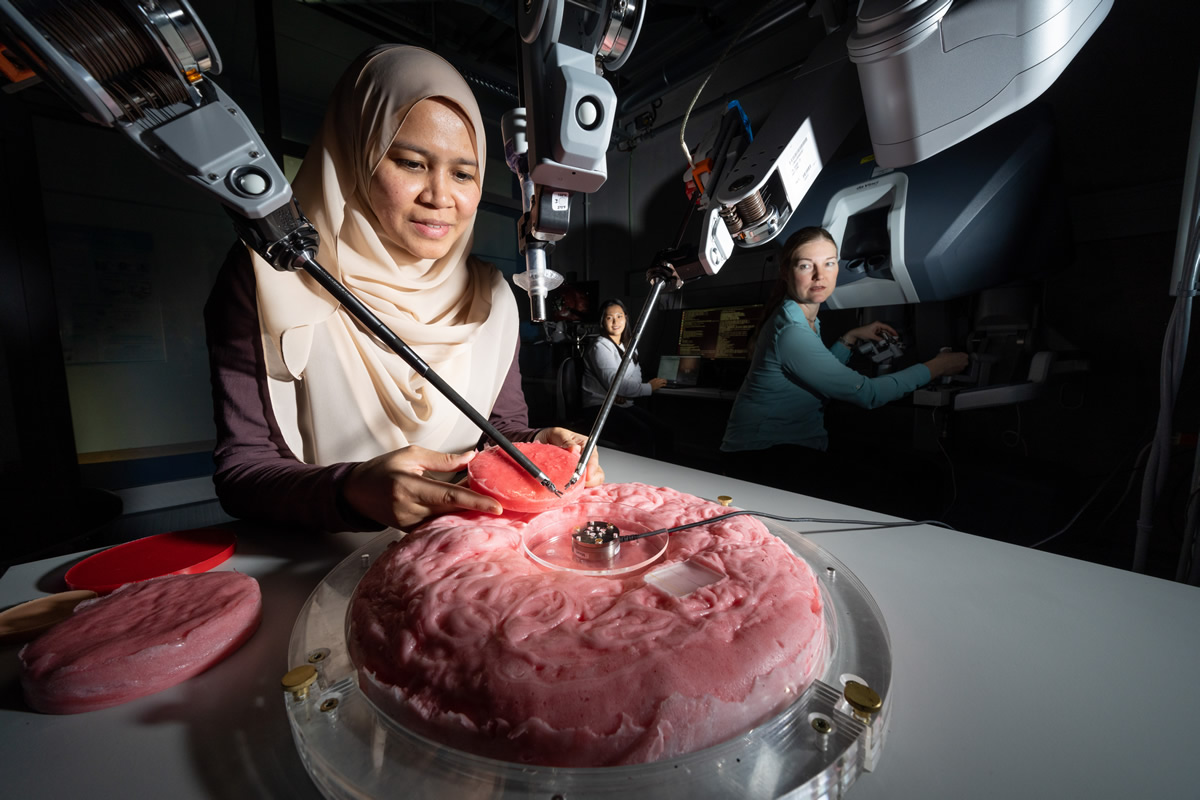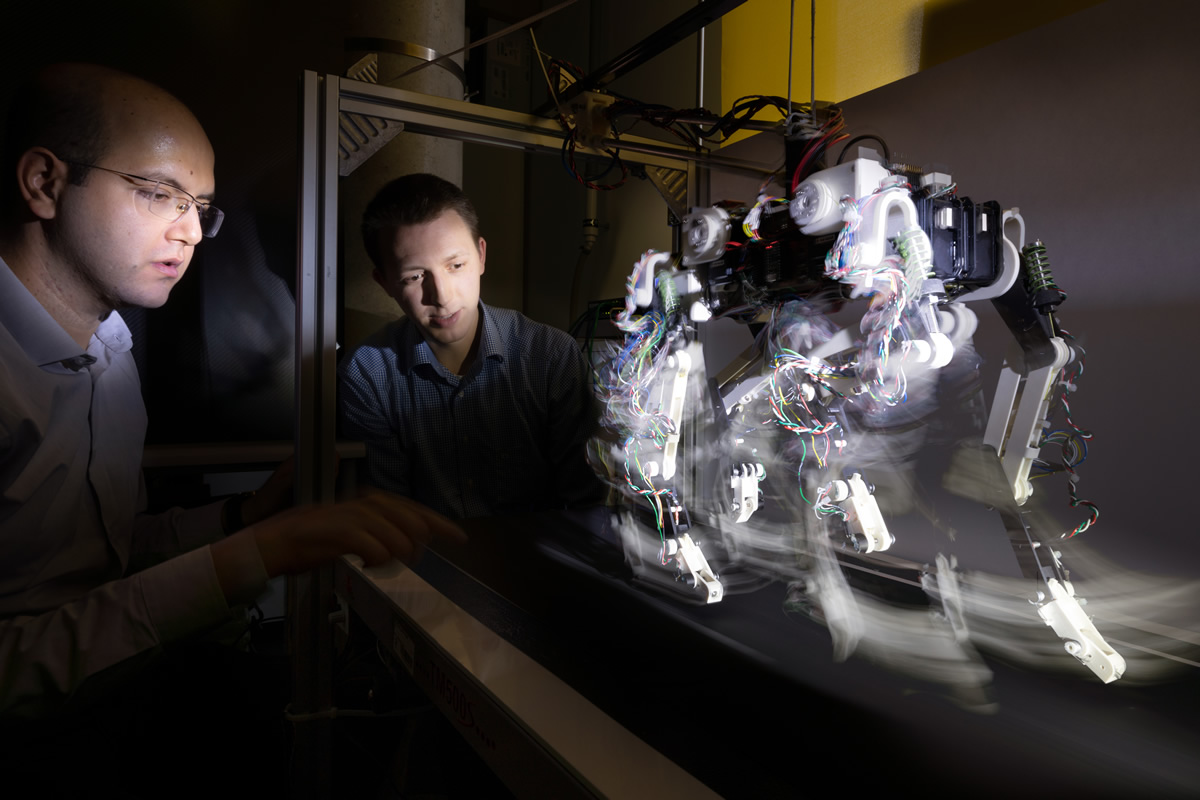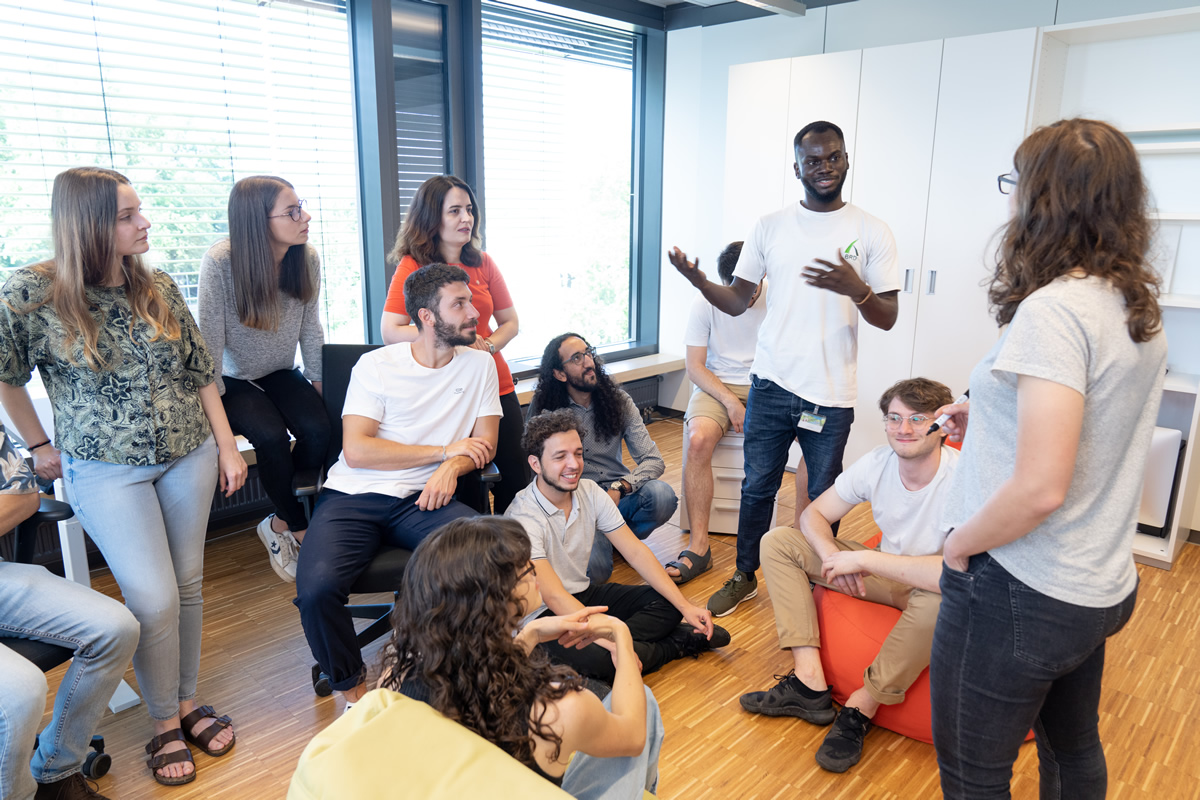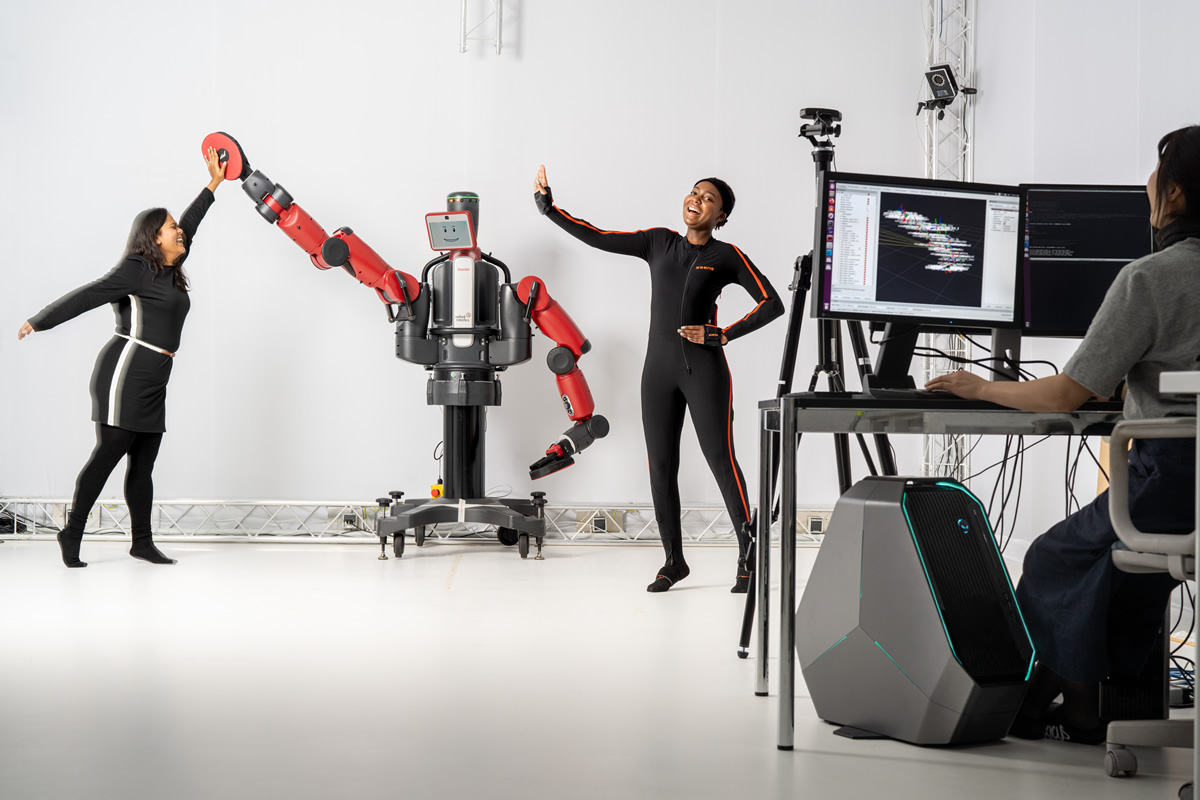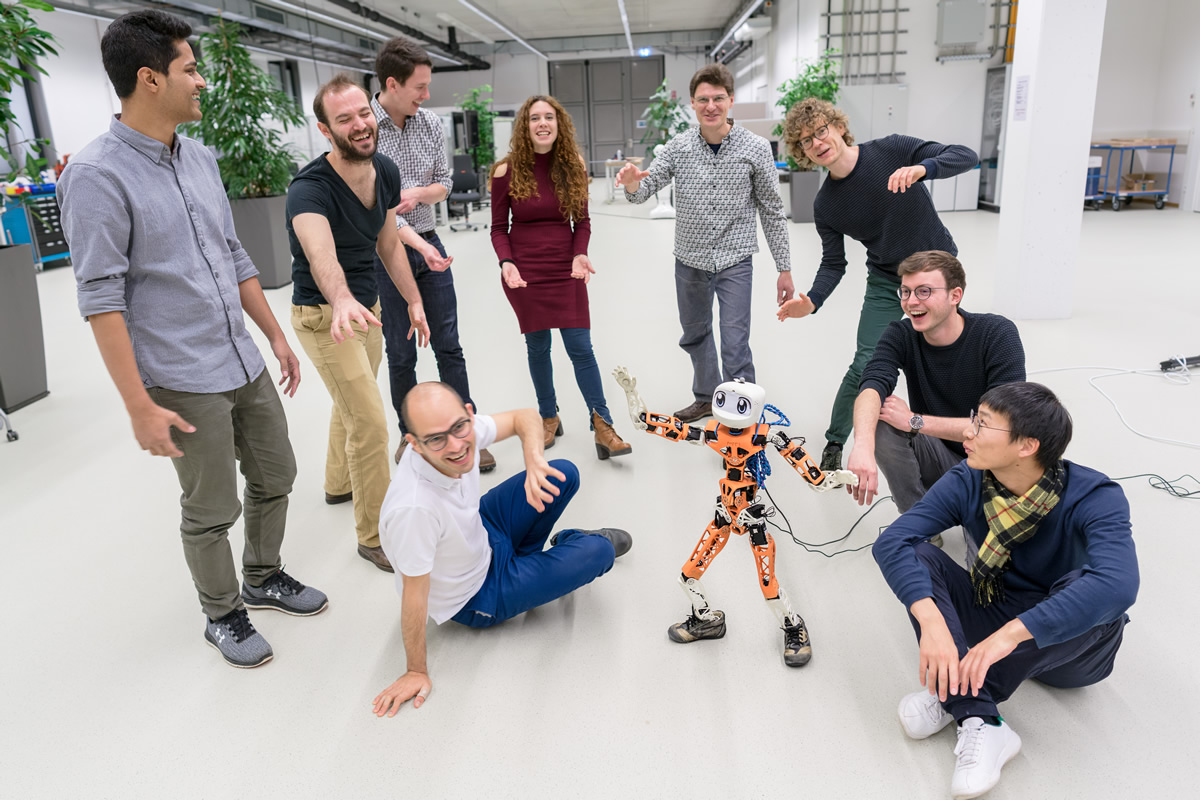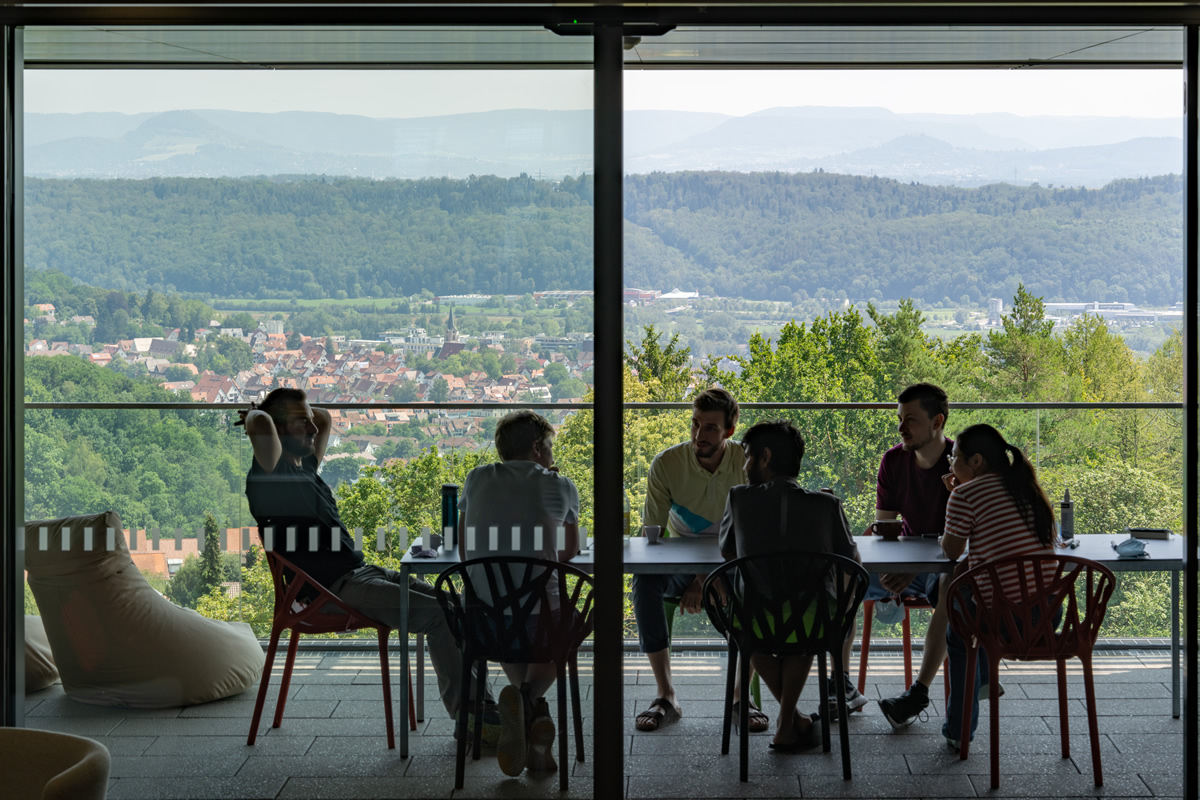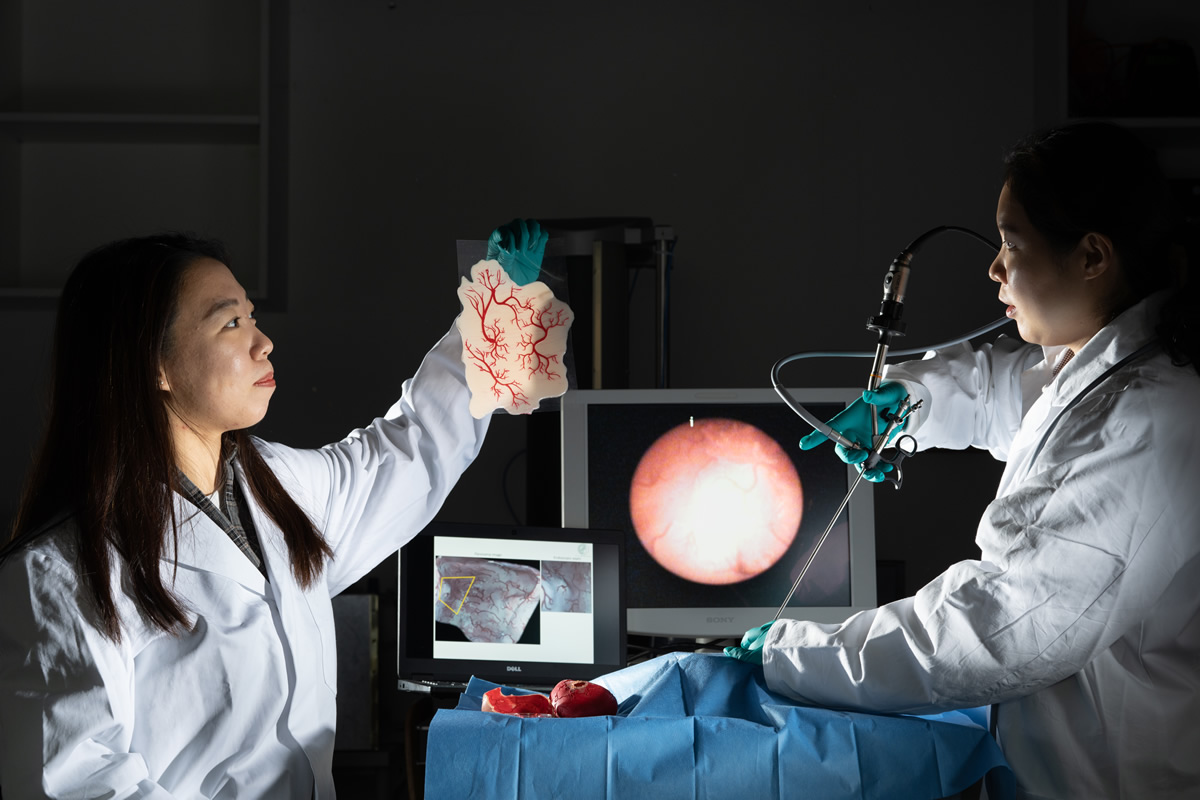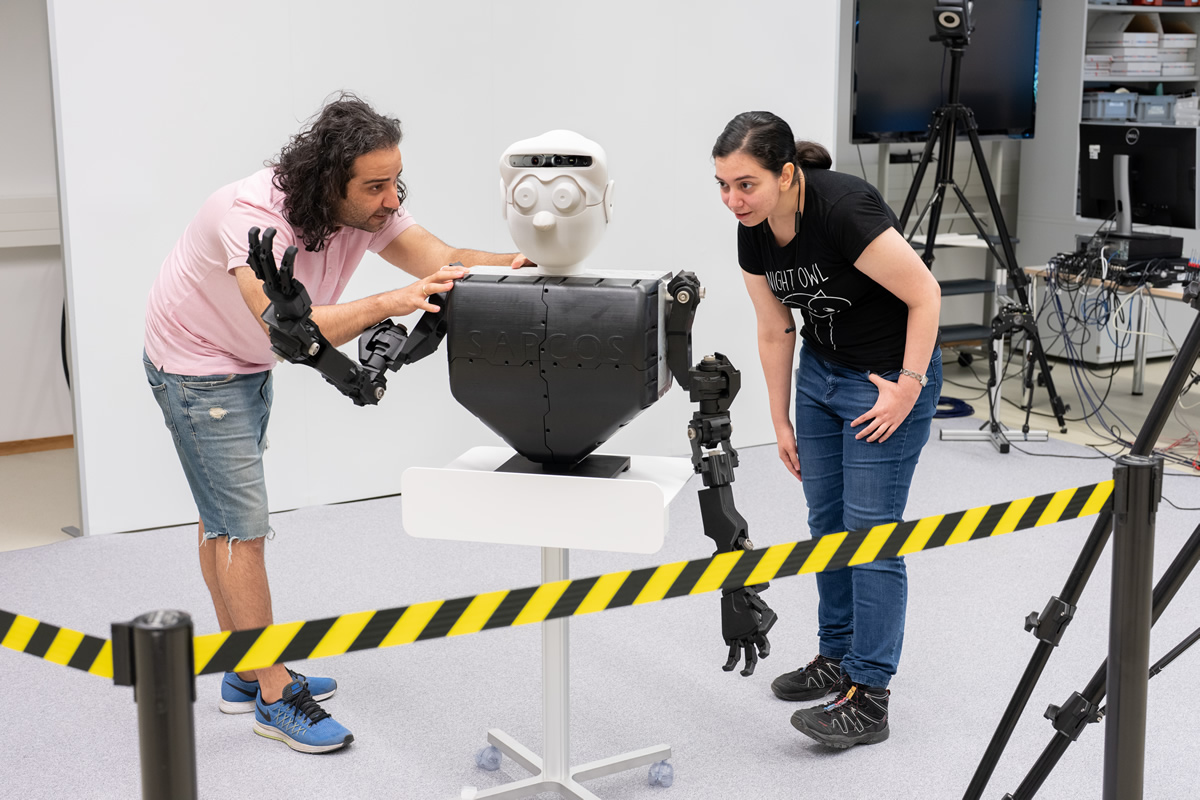Our Institute
The goal of the Max Planck Institute for Intelligent Systems is to investigate and understand the organizing principles of intelligent systems and the underlying perception-action-learning loop. The Max Planck Institute for Intelligent Systems combines – within one center – theory, software, and hardware expertise in the research field of intelligent systems.
The Tübingen campus of the institute focuses on theory and algorithms as well as human-scale systems covering topics such as machine learning, computer vision, control, and the theory of intelligence. Research at the Stuttgart campus of the institute covers small-scale robotics, self-organization, haptic perception, bio-inspired systems, medical robotics, robotic materials and physical intelligence; that is, the embodiment of intelligent behavior in physical, rather than computational, systems.
Intelligent Systems
Every day, artificial intelligence is in the news. Cars are becoming more and more autonomous, unmanned aerial vehicles deliver packages, robots assist us in our homes, and surgery is performed by small robots in our bodies. With the digitization of industry and the presence of cyber-physical systems, Intelligent Systems are increasingly becoming a part of the real world. The ability to create systems for Autonomous Robotics and Intelligent Software is a future key technology in industry, mobility, and our society as a whole.
Intelligent systems operate autonomously in, and adapt to, complex, changing environments. While biological intelligent systems (including humans) have developed sophisticated abilities through interaction, evolution and learning in order to act successfully in our world, our understanding of these phenomena is still limited. The synthesis of intelligent, autonomous, learning systems remains a major scientific challenge. Researchers at the Max Planck Institute for Intelligent Systems investigate the fundamental problem of perception, action, and learning underlying intelligent systems through theoretical and algorithmic work, as well as physical systems on all scales. We want to use this understanding to design future artifically intelligent systems.
Two campuses bringing together leading researchers
The institute has two capuses, building on the local strengths of each site. The two institute sites in Stuttgart and in Tübingen are located on the Max Planck Campuses and spatially connected to four neighboring Max Planck institutions. Together, Stuttgart and Tübingen form one of the biggest clusters of institutes within the Max Planck Society. The close proximity to several institutes and universities covering various disciplines supports many opportunities for scientific collaboration and creates organisational synergies that our institute profits from.
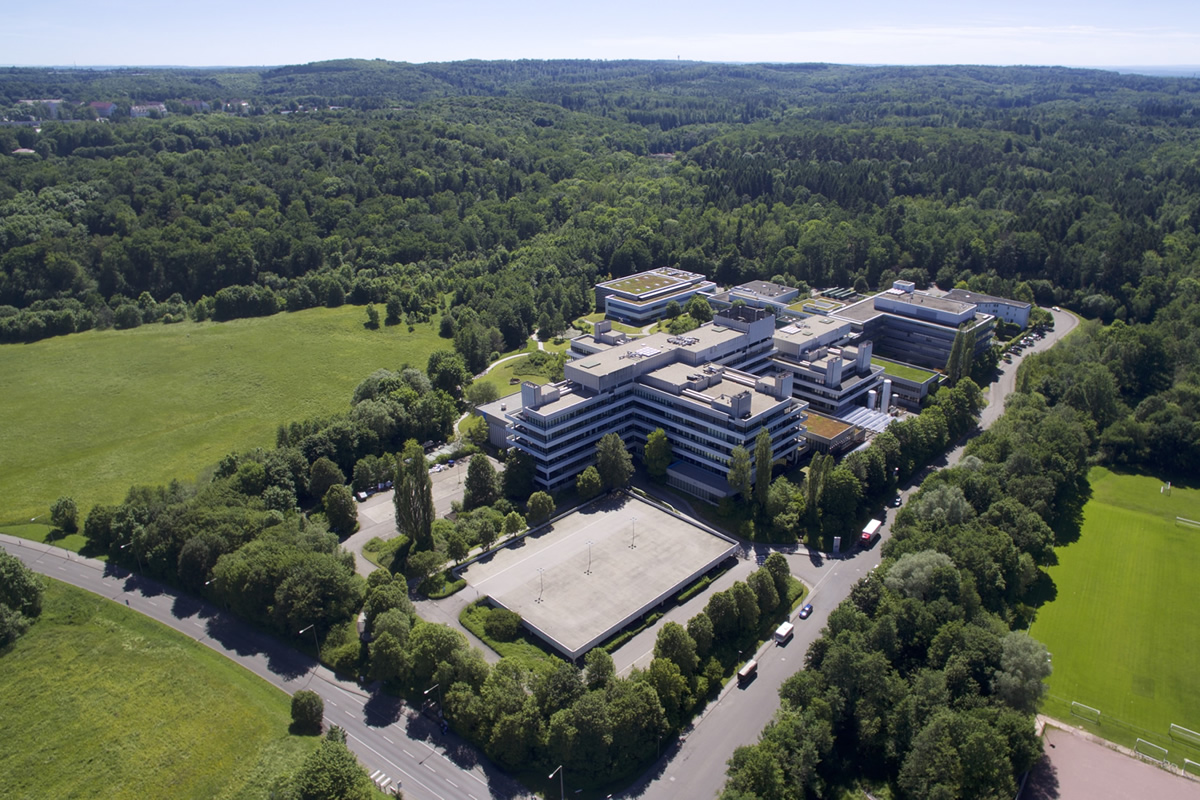 Stuttgart Campus
Stuttgart Campus
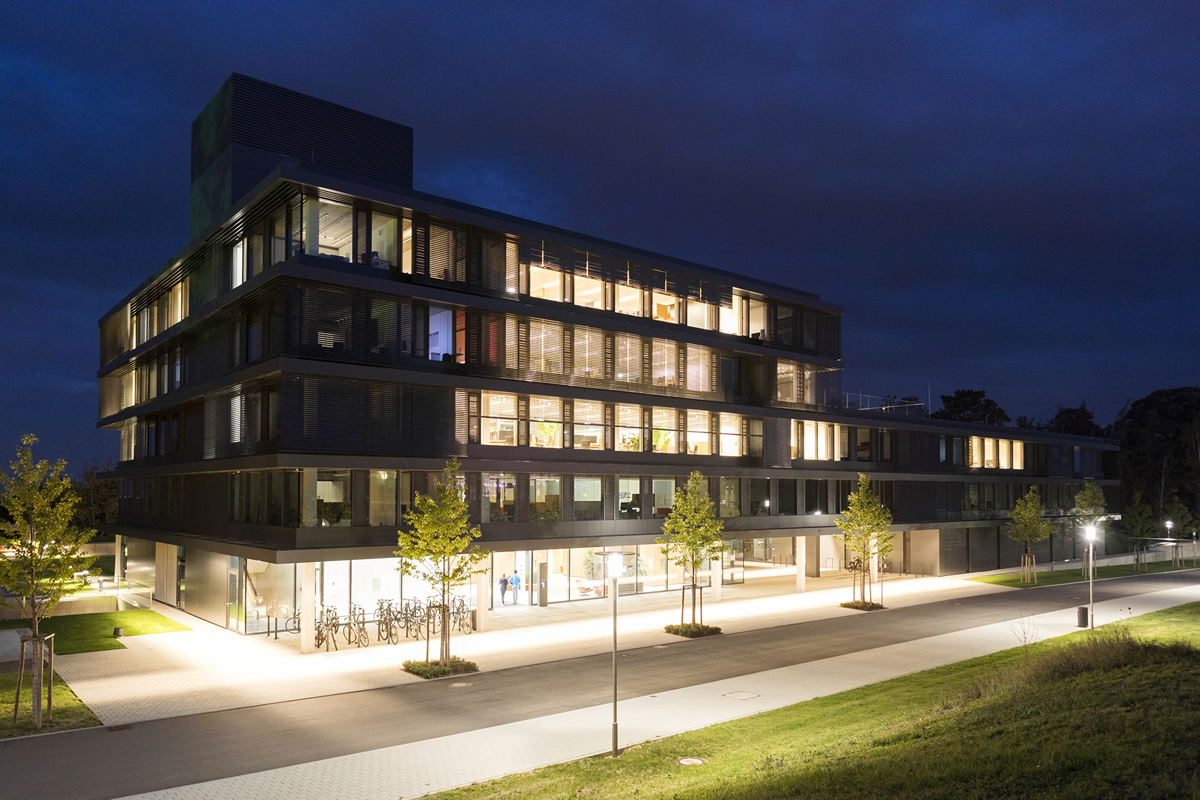 Tübingen Campus
Tübingen Campus
Tübingen is a university city, and a world leading center for Neuroscience, Medicine and Biology. Researchers at the Max Planck Institute profit from good contacts and short ways to outstanding scientists in these fields. The Stuttgart campus of the Max Planck Institute for Intelligent Systems is surrounded by world-leading institutions in Engineering, Robotics, Control, and Materials Science.
Industry partnerships
The Stuttgart-Tübingen region forms the center of the state of Baden-Württemberg, one of the leading economic regions not only in Germany but also Europe's powerhouse and most innovative area. The greater Stuttgart metropolitan region is home to some of the largest companies in the automotive and technology sector and to thousands of successful small and medium-sized enterprises, known for its innovative drive and inventive spirit, with a high level of productivity and low unemployment.
The academic and industrial environment in the region Stuttgart and Tübingen provides the ideal ground to establish a world-leading ecosystem in Intelligent Systems. Our institute has joined forces with key players from industry, science and politics to establish a regional cluster in the field of Artificial Intelligence – Cyber Valley. Through this initiative, the Max Planck Society, the state of Baden- Württemberg, the Universities of Stuttgart and Tübingen, and several industry partners promote a start-up culture and heavily strengthen the local research activities in the field of Intelligent Systems.
International Collaborations
Researchers at the Max Planck Institute for Intelligent Systems collaborate with the best labs all over the world, and the Institute has strong partnerships with leading research institutions, e.g., Cambridge University, Brown University, and Carnegie Mellon University.
In order to boost the research capacities and to pool scientific know-how in the emerging field of Learning Systems in Europe, the Max Planck Institute for Intelligent Systems and ETH Zurich joined forces to form the Max Planck ETH Center for Learning Systems. This first joint research center of the Max Planck Society and ETH Zurich brings together leading researchers in the field of learning systems and provides unique training opportunities for Ph.D. students. The goals of the Max Planck ETH Center for Learning Systems are to achieve a fundamental understanding of perception, learning and adaptation in complex systems, by providing a platform for exchange in research and education.
The MPI is one of the leading initiators of ELLIS, the European Laboratory for Learning and Intelligent Systems, which was created in 2018 to build a network of excellence to compete of excellence that can compete with the major AI hotspots in the US and China. Machine learning has triggered the current revolution in AI with impact on all surrounding disciplines such as computer vision and sensory processing in general, data science, symbolic and rule-based reasoning, robotics, and human-computer interaction. In this revolution the distinction between academic and industrial research is vanishing with rapid and broad commercialization of results. This has led to a need to strengthen European research excellence to remain competitive. ELLIS has set out to retain and attract the best talent.

